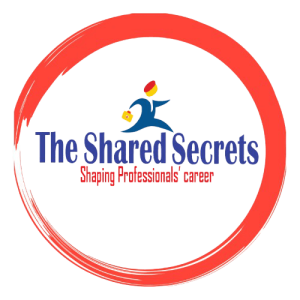Introduction
Your cover letter is more than just an introduction; it’s your chance to make a lasting impression. But did you know that certain words can significantly enhance the impact of your cover letter? Understanding how to boost your cover letter with carefully chosen words can set you apart from other applicants and capture the attention of hiring managers. In this article, we’ll explore 10 powerful words that can elevate your cover letter and increase your chances of landing the job.
Importance of a Strong Cover Letter
A well-crafted cover letter is a powerful tool in your job application arsenal. It’s an opportunity to tell your story, showcase your achievements, and explain why you’re the perfect fit for the job. But with so many applicants vying for the same position, how do you make sure your cover letter stands out?
Why Hiring Managers Value Cover Letters
Hiring managers are not just looking for a list of qualifications; they want to understand who you are as a professional and how you can contribute to their team. A strong cover letter demonstrates your communication skills, your understanding of the company’s needs, and your ability to articulate how you can meet those needs.
The Role of Keywords in a Cover Letter
In today’s competitive job market, using the right keywords in your cover letter can make all the difference. Keywords help to align your application with the job description, ensuring that your cover letter resonates with the hiring manager and passes through any Applicant Tracking Systems (ATS) that might be in place.
10 Power Words to Include in Your Cover Letter
Word 1: Accomplished
Being accomplished means more than just completing tasks; it’s about achieving success and delivering results. Including the word “accomplished” in your cover letter can effectively convey your track record of success.
How “Accomplished” Conveys Success
When you describe yourself as “accomplished,” you’re telling the hiring manager that you have a history of achieving significant results. This word suggests that you don’t just do your job; you excel at it.
Example: Showcasing Achievements
“At my previous position, I was accomplished in driving a 20% increase in sales over a six-month period by implementing targeted marketing strategies.”
Word 2: Innovative
In a fast-paced world, innovation is key. Employers are always on the lookout for candidates who can bring fresh ideas and creative solutions to the table.
The Impact of “Innovative” on Creativity
Describing yourself as “innovative” shows that you’re not afraid to think outside the box. It indicates that you’re a forward-thinker, capable of bringing new perspectives and driving change.
Example: Highlighting Creative Solutions
“In my role as a project manager, I led an innovative team that developed a new workflow process, reducing project completion time by 15%.”
Word 3: Collaborative
In today’s workplaces, teamwork is essential. Being able to work well with others is a valued skill, and “collaborative” is a word that perfectly captures this ability.
The Importance of Teamwork in Modern Workplaces
Describing your approach as “collaborative” highlights your ability to work effectively in a team, contributing to a harmonious and productive work environment.
Example: Demonstrating Team Contributions
“I pride myself on being collaborative, as demonstrated by my leadership in cross-functional teams that consistently exceeded project goals.”
Word 4: Leadership
Leadership is a quality that every employer values, even if you’re not applying for a management position. Demonstrating leadership skills shows that you can take initiative and guide others.
How “Leadership” Reflects Your Potential
Including “leadership” in your cover letter indicates that you have the potential to grow within the company and take on more responsibilities.
Example: Illustrating Leadership Roles
“As a team lead, I displayed leadership by mentoring new hires and coordinating a project that resulted in a 30% increase in efficiency.”
Word 5: Strategic
Being strategic means thinking ahead and planning effectively to achieve long-term goals. This is a quality that hiring managers look for in potential employees.
Why “Strategic” Shows Forward-Thinking
The word “strategic” suggests that you are not just reactive but proactive in your approach to work. It implies that you’re capable of making decisions that align with the company’s broader objectives.
Example: Presenting Strategic Initiatives
“I implemented a strategic plan that aligned our department’s goals with the company’s mission, resulting in a 25% reduction in operational costs.”
Word 6: Adaptable
The ability to adapt is crucial in today’s ever-changing work environment. Employers need candidates who can thrive in different situations and embrace new challenges.
The Value of Flexibility in the Workplace
Describing yourself as “adaptable” tells employers that you can handle change, whether it’s a shift in company direction or the introduction of new technology.
Example: Proving Adaptability in Changing Environments
“In my previous role, I demonstrated adaptability by successfully transitioning from a traditional marketing approach to digital strategies, resulting in a 40% increase in online engagement.”
Word 7: Driven
Employers want to hire people who are motivated and have a strong work ethic. Describing yourself as “driven” can help convey this to hiring managers.
How “Driven” Demonstrates Motivation
Being “driven” means that you are highly motivated to achieve your goals. It’s a word that suggests you have a strong inner drive to succeed.
Example: Reflecting Your Commitment to Success
“I am driven by the desire to excel, as shown by my consistent track record of exceeding quarterly sales targets.”
Word 8: Proficient
Proficiency is a sign of competence and expertise. Including this word in your cover letter can help emphasize your skill set and reassure employers that you have the necessary knowledge to succeed in the role.
“Proficient” as a Marker of Expertise
Describing yourself as “proficient” suggests that you have a strong command of the skills required for the job. It’s a word that can help position you as a knowledgeable and capable candidate.
Example: Showcasing Your Skill Set
“I am proficient in data analysis, having utilized advanced tools to provide actionable insights that led to a 15% improvement in customer retention.”
Word 9: Reliable
Reliability is one of the most valued traits in an employee. Employers want to know that they can depend on you to deliver on your promises.
The Importance of Dependability
Describing yourself as “reliable” assures employers that you are trustworthy and can be counted on to meet deadlines and deliver quality work.
Example: Building Trust with Reliability
“My reputation as a reliable team member is built on my consistent ability to meet project deadlines and produce high-quality results.”
Word 10: Results-Oriented
Being results-oriented means focusing on achieving specific outcomes, a quality that is highly valued in the workplace.
Why “Results-Oriented” is a Must for Impact
Describing yourself as “results-oriented” shows that you are focused on delivering tangible results and contributing to the company’s success.
Example: Demonstrating Tangible Outcomes
“I am a results-oriented professional, as evidenced by my track record of driving a 20% increase in revenue through targeted sales strategies.”
How to Effectively Use These Words
Tailoring Words to Job Descriptions
While these words are powerful, it’s important to tailor them to the specific job description. Make sure that the words you use align with the requirements of the role you’re applying for.
Aligning with Job Requirements
Review the job description carefully and incorporate the keywords that are most relevant to the position. This alignment will help your cover letter resonate with the hiring manager and increase your chances of landing an interview.
Avoiding Overuse and Maintaining Authenticity
While it’s important to use these power words, avoid overloading your cover letter with them. Using too many keywords can make your cover letter sound forced and inauthentic. Aim for a natural and balanced approach.
Combining Power Words with Personal Experience
To maximize the impact of these power words, combine them with personal experiences and achievements. This will help to create a compelling narrative that highlights your qualifications and sets you apart from other candidates.
Linking Words to Your Achievements
Instead of simply listing these words, link them to specific achievements in your career. This will make your cover letter more persuasive and show that you truly embody these qualities.
Crafting a Compelling Narrative
Use these power words to craft a narrative that tells the story of your career. By weaving these words into your experiences, you can create a cover letter that is both engaging and impactful.
Common Mistakes to Avoid
Overloading Your Cover Letter with Keywords
While it’s important to use keywords, overloading your cover letter with them can be counterproductive. Focus on quality, not quantity, and ensure that your cover letter remains concise and to the point.
Using Vague or Overused Words
Avoid using vague or overused words that don’t add value to your cover letter. Words like “hard-working” or “detail-oriented” can be too generic and may not effectively convey your unique strengths.
Failing to Provide Context for Keywords
It’s not enough to simply include power words in your cover letter; you need to provide context for them. Explain how these qualities have helped you succeed in your career and how they will benefit the employer.
Conclusion
Incorporating these 10 power words into your cover letter is a strategic way to enhance its impact. By understanding how to boost your cover letter with these words, you can make a strong impression on hiring managers and stand out in a competitive job market. Remember to select the words that best align with the job description, back them up with specific examples, and maintain authenticity throughout your writing. With these tips, you’ll be well on your way to crafting a cover letter that not only impresses but also secures you the job.
Final Tips for Crafting a Winning Cover Letter
Remember to keep your cover letter concise, focused, and tailored to the job you’re applying for. Use these power words to highlight your strengths, but don’t forget to back them up with specific examples and achievements. With these tips, you’ll be well on your way to crafting a cover letter that impresses hiring managers and lands you the job.
FAQs
What is the most important word to include in a cover letter?
While all 10 words are important, “Accomplished” is particularly powerful as it directly conveys your ability to achieve results.
How can I avoid making my cover letter sound too generic?
To avoid sounding generic, tailor your cover letter to the specific job and company. Use the power words in context with your own achievements to create a personalized narrative.
Should I use all 10 words in every cover letter?
No, you don’t need to use all 10 words in every cover letter. Select the words that are most relevant to the job you’re applying for and incorporate them naturally into your writing.
Can using these words make my cover letter stand out?
Yes, using these power words can make your cover letter more compelling and help it stand out to hiring managers. Just be sure to use them in a way that feels natural and authentic.
What other tips can help my cover letter stand out?
In addition to using power words, focus on being concise, tailoring your letter to the job, and providing specific examples of your achievements. Proofread your cover letter carefully to avoid any typos or errors.

